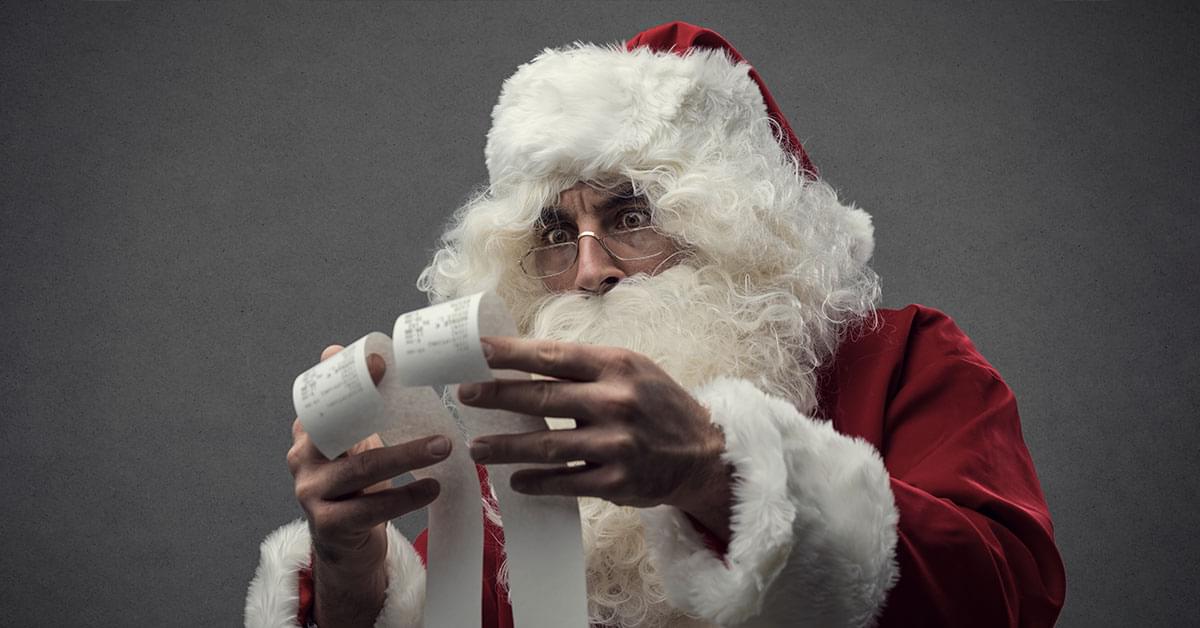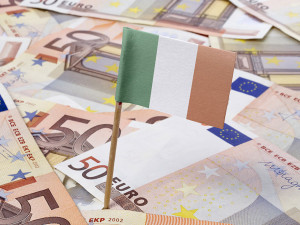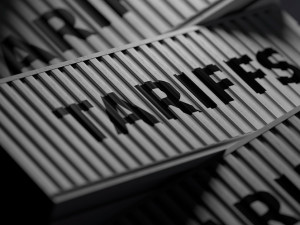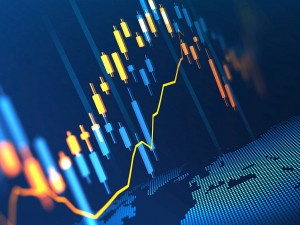
For many Western economies, Christmas is incredibly beneficial to the economy, and provides a huge boost to both spending and production. However, the spike and subsequent slump carries its own disadvantages, and some economists argue that the microeconomic losses and wastage outweigh the benefits.
How much do we spend at Christmas?
According to Finder.com’s statistics, the average person in the UK is expected to spend approximately £602 on Christmas gifts in 2023.
This is an increase of 40% from the average spend of £429 in 2022, which may have been due to the high inflation levels this time last year.
Not only is this a significant increase in spending across the year, but it appears to be on the rise, perhaps as the Christmas economy becomes stronger and more commercialised each year.

Positive effects of Christmas on the economy
The positive effects of Christmas on the economy are pretty clear – Christmas is beneficial to a country’s economy for the reason that production and consumer spending are both drastically heightened. This is not just for gifts – this includes many other holiday-related items such as decorations, food and all accessories that go with these things, for example tools to apply the decorations and kitchen utensils to serve food.
Generally in the retail sector, both e-commerce and brick-and-mortar establishments receive a huge boost in the Christmas season. As a result, advertising budgets and sales are often increased to further take advantage of the Christmas spending.
Job creation
Job creation is another positive effect of Christmas on the economy. Due to increased demand and footfall, employment is provided for many individuals during Christmas, often at a higher pay rate. These are often jobs in retail, logistics and hospitality, and many people rely on this for their yearly income.
Small business boost
Small businesses can make huge gains during the holiday season as spending increases. For many budding businesses, Christmas can be a season that launches their business into the new year, and allows them an economic springboard that might not have been there at any other time.
Tourism & travel
Christmas is a time when people travel to visit friends and family, or even take holidays. Hotels and travel companies will always be in high demand during the holiday season.
Charity
The Christmas season inspires much more charitable behaviour, and many charities and non-profit organisations rely on this charitable mood to boost their cause. This can provide huge support to social causes, and allow these organisations to expand and reach a wider audience.

Negative effects of Christmas on the economy
While the festive frenzy is generally beneficial to most businesses and economies, there are some significant downsides and potential risks to the top-heavy economy.
Financial strain on consumers
The pressure to spend money during the Christmas season is vast, and this can lead to financial strain for consumers, particularly if they’re going into debt to afford it.
According to Finder.com’s study, 23 million Brits this year (43% of the population) plan to use credit cards to cover their Christmas spending. Specifically to Gen Z, 61% are planning on using credit cards, which suggests a move towards credit spending during the Christmas season.
Too much reliance on credit is a dangerous position for an economy, and could contribute to economic downturn in the future if people begin to default on their Christmas credit en masse. Combined with the overall increase in spending, and Gen Z borrowing the most, this could be a worrying sign.
Overconsumption & waste
In a world that needs to focus on its climate impact, and focus on building more green economies, Christmas is a huge obstacle.
A list from Business Waste details the colossal wastage that happens each year due to overbuying and unwanted gifts. Food and decorations also create a vast amount of waste, both in their disposal, but also the packaging they’re contained in.
Environmentally, Christmas needs to be addressed more than any other season, as it currently contributes to a significant amount of damage to the environment.
Pressure on businesses
Businesses might not always benefit from the spike in spending. It’s important to remember that all businesses are unique, and vary in size and operation. Smaller businesses may struggle to compete against others in the holiday season.
Plus, not all businesses are aligned for Christmas, and while some may benefit from the Christmas season, others might find their business decline, or even halt sales completely.
Those that want to keep up with the competition at Christmas might feel an incentive to offer discounts and competitive prices which could cause the business structure to break down.
On the other hand, a total reliance on Christmas has its downsides. According to a report from Notonthehighstreet in 2019, one in five businesses claim that they will ‘close in the next 12 months if Christmas is below average’. During times of economic downturn, Christmas spending can be reduced, which for these Christmas-dependent businesses can be devastating.
Post-holiday slump
Naturally, after a heavy spending period, most consumers will cut back on their spending in the first few months of the year. This can cause a slowdown in sales, and for many businesses is a challenging time, contributing to many of the closures referred to above.
Having the economy spike and then slump in this way is not always good for stability, and can cause shockwaves that trigger other economic problems.
Christmas under microeconomic theory
Some economists go so far as to state that Christmas and gift-giving actually has a negative effect on the economy. Economist Joel Waldfogel published an article for The American Economic Review called ‘The Deadweight Loss of Christmas’ which outlines that there is a significant dropoff of value in presents, comparing the receiver to the giver.
Waldfogel’s theory states that gift-giving actually “destroys between 10 percent and a third of the value of gifts.”
What is Christmas creep?
Christmas creep is the gradual expansion of the Christmas season which is pushed by retailers. Black Friday, the day after Thanksgiving in the United States, is considered by many to be the marker of when Christmas selling begins, but due to Christmas creep, lots of retailers are starting to sell Christmas-themed products earlier and earlier.
Some now consider the end of Halloween (October 31st) to be the marker of the start of the Christmas retail season, but some retailers have crept beyond even Halloween.
If you’re looking to make a transfer this holiday season, then look no further than CurrencyTransfer. You can sign up for free and you’ll get a dedicated account manager to assist you with your personal and business payments.
Caleb Hinton
Caleb is a writer specialising in financial copy. He has a background in copywriting, banking, digital wallets, and SEO – and enjoys writing in his spare time too, as well as language learning, chess and investing.



